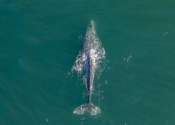Record heat rots cocoa beans threatening Ivory Coast agriculture
Surrounded by cocoa trees and intense heat, Christian Andre Yapi is forced to admit that the precious beans are no longer growing as they should, a major problem for the world's leading producer.









